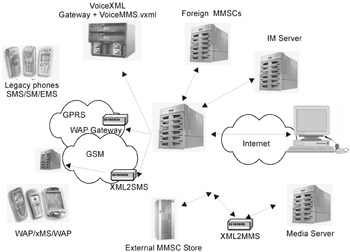Working through a Proxy Server
Network protocols support the capability of compressing information; however, it is uncompressed traffic that needs to be paid for. Furthermore, the degree of compression is relatively low, because packers have to process tiny portions of information divided into packets, which doesn't allow high-quality compression. In addition, packers must not delay passing of control for longer than several milli-seconds; otherwise , the bandwidth would be reduced considerably (note that bandwidth is the primary concern of the service provider).
Thus, the best decision is to compress the traffic using compression utilities such as RAR or Zip, which provide an excellent compression level. Email and Web pages are compressed approximately 3 to 5 times, thus reducing the cost of 1 GB to about $150. This is affordable for a hacker!
Some HTTP proxies (Fig. 30.1) provide the HTTP compression option, which dramatically improves performance and makes Web surfing considerably cheaper. In addition, you'll need a Web browser capable of processing compressed Web pages (Firefox and Opera do this by default, but Internet Explorer 6 requires additional tuning, which consists of enabling HTTP/1.1 support). Here is a list of the five best proxy servers that I regularly use:
-
proxy.cs.gunma-u.ac.jp:8080
-
proxy.hoge.ac.jp:8080
-
proxy.res.anken.go.jp:8080
-
bi.ikenobo-c.ac.jp:80
-
proxy.infobears.ne.jp:80

Figure 30.1: Working through an HTTP proxy server
Just specify the preferred server address in the browser settings. These servers are declared as free. Unfortunately, they are only relatively free. They can stop providing free services at any moment. Furthermore, the operating speed is far from perfect.
EAN: 2147483647
Pages: 164